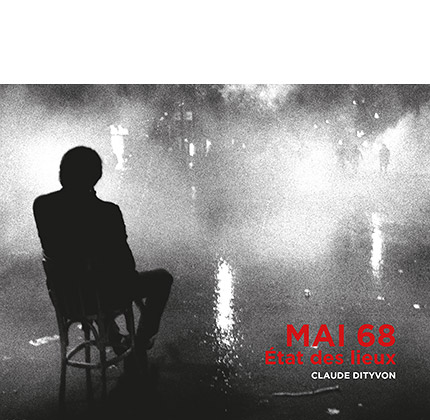- Photographs : Claude Dityvon
- Text : Christian Caujolle & François Cheval
- 96 pages
- 24 x 18,5 cm
- 77 duotone pictures
- Couverture rigide
- French / English
- €33,50
- ISBN : 979-10-92265-70-5
Christian Caujolle, excerp
Dityvon taps into and shares an atmosphere, a state of mind, and a sense of freedom which perfectly suits him. He is interested in the signs, the graffiti, the commotion, the faces drawn tight in the exchange of ideas, the overflowing of words. He who says “The street was speaking. Me, I speak. And watching is just another way of speaking” found, without apparent effort, with unparalleled fluidity in his remit because he was not looking to make any one point, a sort of urban poetry in these intense clashes. He could not help but feel affected by this enormous longing for freedom which was so close to his own dreams.
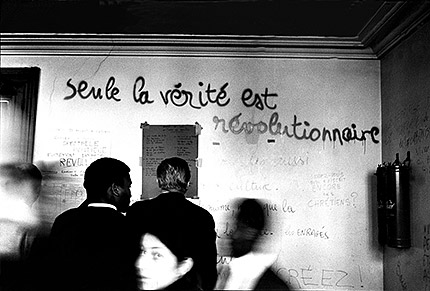
Thus, May 1968 by Claude Dityvon is anything but a simple report. It could be described as a chronicle, in the true meaning of the word, or a diary, almost a notebook, as if he had stumbled upon a troubled Paris and taken a trip through it. No symbolic imagery, nothing designed to accompany headlines in newspapers of magazines, no desire to go down in history.
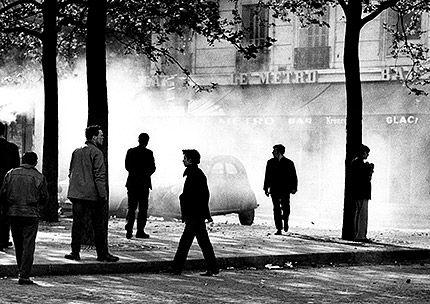
Just a noticeable pleasure to have had the chance to be there, at that moment, and to be able to capture the images with no constraints revealing his gaze. He has succeeded in “showing that which is between things, that which cannot be seen, and which resemble the music of words, and the murmuring of the streets, the state of affairs”. That is no small feat.
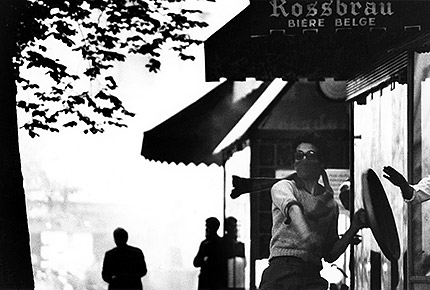
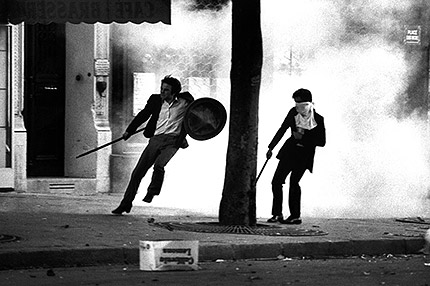
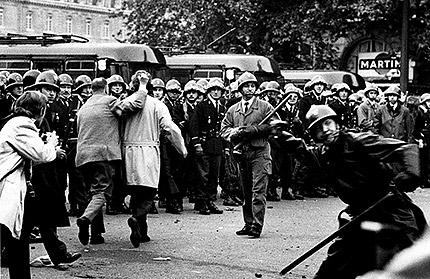
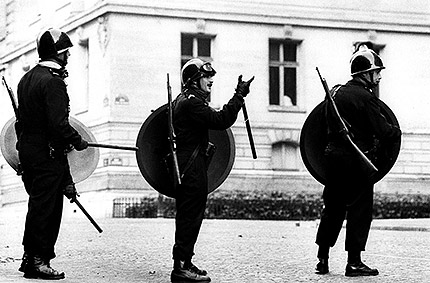
François Cheval, excerp
Growth and fulfilment of photographic intuition: this is it, for Claude Dityvon, this is the long-awaited moment that he has been watching for on the horizon, the event of his budding career. Over thirty, self-taught, of course, but so many books and brochures, so many films and so much music and finally, a keen sense of observation, all in the secret hope of what is now unfolding. He who so fears crowds, this introvert finds himself surrounded, surrounded by a moment which he had dare not hope for.
His mind is inventing things that he cannot put into words. A lonely photographer, he wants to create a new meaning for the word testimony. When the truncheons strike the demonstrators on Boul’Mich, he knows instinctively that Pandora’s box has opened. When the sign posts are pulled out, he glimpses new destinations. The old world shatters. For him.
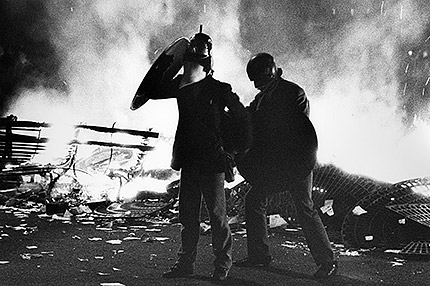
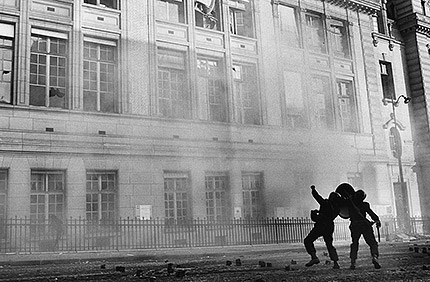
In his very personal account of May 68, Claude Dityvon gives a view of the events which satisfies no one. Here, there is no hero, no emblematic figure with which to make history. Even if the malicious – and there were some – fit the description, this was paid little heed by the photographer. Because in this original narration, still unrivalled in its form, it is all about the connection that is maintained between image and word. They are inseparable.
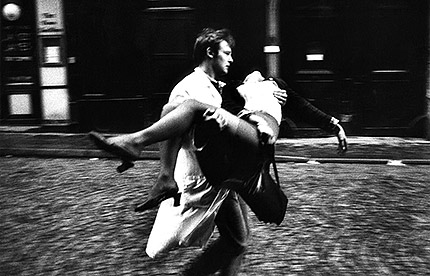
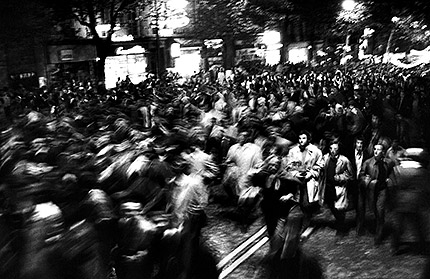
In these photographs, they scream and shout, drunk on words. A theatre of lyrical illusion, these images assure us of the singular and liberating power of speech. They overflow with words and inscriptions which, in a continuous surge of sounds and signs, believe in their own power. That which was abhorred in times bygone springs up, a noisy expression of a revolt held back for so long. The inscriptions on the walls of the Sorbonne appear for what they are, signs embodying the idea. At the impurity of the world, photography opposes the innocence and naivety of words and combat. The vague quest of this young photographer, this autodidact, the bridge between seeing and regarding others, is persistent, but clear.
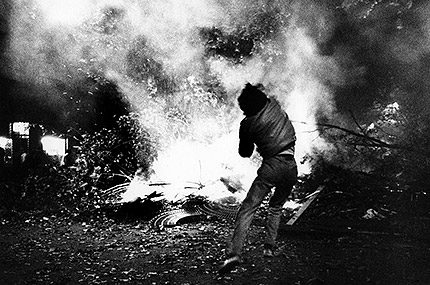
The unquestionable force of these timeless images resides in the building of tension which is enduring, almost convulsive, and at times, surreal. This primary source becomes a mystery. Here, there is no desire to recreate the spirit of past: The Commune and the Front Populaire scarcely haunt these moments. Without worry of illustrating or documenting, taking a photograph becomes a humble representation of pure desire, free from all subjection. In a few days, without patron and without any destination, a story takes shape, which has no fate but for the personal satisfaction of the photographer. At Saint-Germain-des-Prés, in this liberated territory, Claude Dityvon surveys the events alone. He has no other desire than to take photographs.
